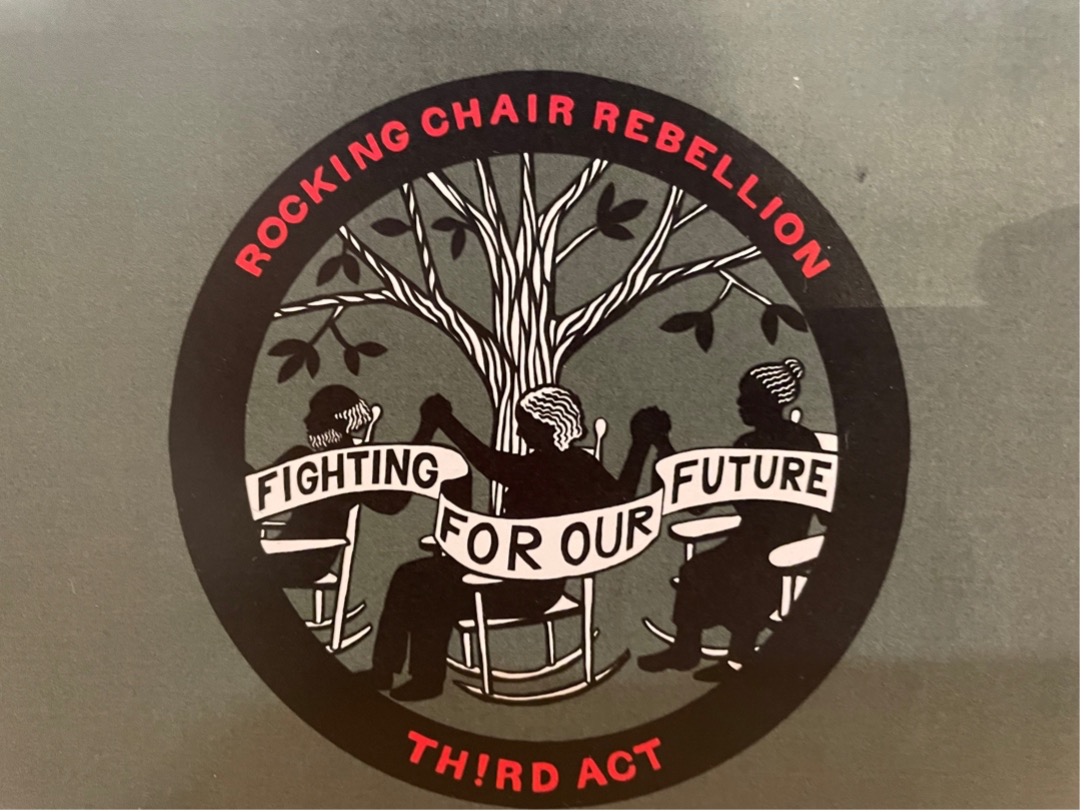Excitement and passion filled the air of the Bromery Center for the Arts on Monday, Oct. 16 when nearly 40 members of Third Act, a climate justice organization, met each other in person for the first time for a community workshop.
As a part of the University of Massachusetts Art Sustainability and Activism Series (ASA), the workshop included discussions around how older generations can use their life experiences to get involved in climate activism.
Launched in December of 2021, Third Act is a national organization of about 70,000 members who are over 60 years old and passionate about climate justice and democracy.
B Fulkerson, a lead national organizer for Third Act, explained there are misconceptions that are often attributed to older generations.
“This idea that you are getting more conservative as you get older; No, that’s not true,” Fulkerson said.
George Gaines, facilitator for Third Act Massachusetts, noted the strength and drive that group members represent.
“The people that were involved had the same kind of fever that I had… the boots on the ground, hand in the air, saying ‘What can I do?’” Gaines asked.
The workshop highlighted the importance of intergenerational activism and community to overcome grief that can arise from climate crises.
Fulkerson is an activist that works with a variety of social and climate changes, with a lot of their experience originating from their home state of Nevada. They want to rebuild a sense of hope that older generations were able to experience during social and political changes of the 20th century.
“Younger folks… they haven’t experienced the hope from these big changes… so the idea is now we want to get people out there and kind of renew that spirit,” Fulkerson said.
In a statement to PBS, Bill McKibben, founder of Third Act, emphasized the importance of older generations creating a world for their children and grandchildren. With over 70 million people the age of over 60 in the nation, McKibben said their input “really matters.”
After working and experiencing the world around them for their whole lives, “People emerge in their third act with skills, resources, with time, which they may not have had before, and with kids or grandkids. I mean, your legacy is the planet you leave behind for the people you love the most,” McKibben said.
Third Act is structured into working groups, either by affinity or geographical location. Affinity groups are organized nationwide and formed based on professions. Three large campaign clusters include advancing fossil free finances, democratizing energy by shifting climate policy and uplifting voting and democracy.
The larger initiative of inviting Third Act to the ASA 2023-2024 series was to promote the interdisciplinary movement of climate justice, and to have different groups of people working together.
The ASA series focuses on “representing the spirit of bringing artists, and authors, and writers, and changemakers and scientists together in spaces,” according to Darci Maresca, assistant director of the School of Earth and Sustainability.
“A really important part of ASA is not just bringing people together to increase awareness and to learn about how different facets of life are interacting with the climate crisis, and grappling with it, and expressing it, but also the idea that there is a space for us to do this work together… and ultimately to take action,” Maresca said.
Fulkerson noted that one of the things they always hope to involve in all of their initiatives is love. The idea of having and spreading love is a driving force within Third Act, and societal change as well.
“I’m really passionate about love, but also strategy, and rigor,” Fulkerson said. “Figuring out what is going to work, what is going to get us to protect the biosphere in the shortest amount of time… It’s got to be collectively formed so everyone has that emotional connection to it.”
Eve Neumann can be reached at [email protected].




















